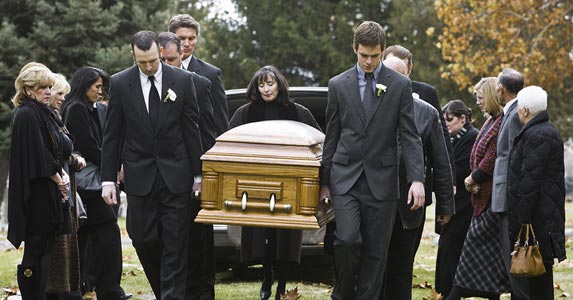Wife: What are my rights in claiming my deceased husband's Social Security?
 Dear Senior Living Adviser,
Dear Senior Living Adviser,
My husband died in February 2002 at the age of 61. I turned 60 years old in February of 2011. I was recently told that, as of age 60, I could've started collecting benefits on my husband's earnings, then on my own earnings once I turn 66.
Is this correct and is it too late for me to do this?
Yours truly,
-- Judith Jumpstart

Luc-Richard Photography/Getty Images
Dear Judith,
Absent children at home, a spouse can claim a survivor's benefit at age 60, or age 50 if the surviving spouse is disabled. The benefit is a reduced benefit when it's claimed prior to the surviving spouse's full retirement age. You'll be turning 65 in February 2016, but your full retirement age is 66.
Retro payments of survivor's benefits?
The Social Security Administration limits retroactive payments of survivor's benefits prior to full retirement age in most cases to 6 months' worth of benefits. The maximum is 12 months.
If you work while getting Social Security survivor's benefits and are younger than full retirement age, your benefits may be reduced if your earnings exceed certain limits.
According to the Social Security Administration, "If a person receives widow's or widower's benefits and will qualify for a retirement benefit that's more than their survivor's benefit, he or she can switch to their own retirement benefit as early as age 62 or as late as age 70. The rules are complicated and vary depending on the situation, so talk to a Social Security representative about the options available."
Read more: http://www.bankrate.com/finance/retirement/rights-claiming-social-security-widow-benefits.aspx#ixzz416ETXrzI
ETIREMENT
Social Security survivor benefits for widows and widowers

RubberBall Productions/Brand X Pictures/Getty Images
Benefits guide for widows, widowers
Losing a spouse to death leaves people with a devastating hole in their lives, but that hole may feel even deeper if their financial security disappears at the same time.
About 53% of married couples rely on Social Security for 50% or more of their income, and 22% of couples depend on it for 90% or more, according to the Social Security Administration.
"
When you are widowed, that means you are only going to get 1 Social Security benefit. If you are just making it on 2 benefits, then you are going to be up a creek when you lose 1," says Cindy Hounsell, an attorney and president of the Women's Institute for a Secure Retirement.
Given both the unpredictability and the inevitability of death, planning for the time when death takes a deep cut in Social Security benefits is wise.
Here are 6 factors to consider about Social Security survivor benefits while you are still able to make plans to maximize what a surviving spouse can collect.

RubberBall Productions/Brand X Pictures/Getty Images
9 months of marriage is usually required
You must be married 9 months to claim Social Security survivor benefits -- with a few exceptions.
Survivor benefits are also available to those married for less time than that in a few cases, including the following:
- The survivor is the parent of the deceased's minor child.
- The death was accidental.
- The deceased died in the line of active military duty.
Suicides don't count.
Also, if the couple was previously married for at least 9 months, divorced, then remarried with the reasonable expectation that the deceased would survive 9 months, the widow or widower may also qualify for survivor benefits.

Nils Hendrik Mueller/Cultura/Getty Images
Patience is (generally) a virtue
If you find yourself in the world of survivor benefits, be deliberate about how you decide to take them.
If you wait until full retirement age -- currently 66 -- they will be 40% higher, even without cost-of-living adjustments, than they would be if you take them when they are first available at age 60. But the reward for patience ends at full retirement age, when the value of survivor benefits stops increasing, says Laurence J. Kotlikoff, co-author of "Get What's Yours: The Secrets to Maxing Out Your Social Security."
There is a big exception:
If your spouse took benefits before full retirement age, you may get caught in what Social Security calls the "RIB-LIM rule." Under this rule, under certain conditions, the survivor's benefit will be 82.5% of the deceased's full-retirement benefit, and the benefit won't get larger if the survivor waits until full retirement age to collect it.
The rule was originally written in the 1930s, and it was designed to protect nonworking wives. It remains largely unchanged today and can cut a spouse's survivor benefits. Kotlikoff estimates that the rule affects about 60% of widows.
Because the rule affects different survivors differently,
it is very important to understand how it may impact your own situation, especially if your higher-earning, older spouse plans to take Social Security before full retirement age.

PhotoAlto/Antoine Arraou/Brand X Pictures/Getty Images
New law bad for women
The Bipartisan Budget Act of 2015, which eliminated many claiming options for married and divorced couples, doesn't directly impact survivor benefits. "Any of the claiming options available before are still available now," says Roberta Eckert, vice president of Nationwide Retirement Institute.
But for married couples, the new law eliminates the file-and-suspend strategy for those born after Jan. 2, 1954. That strategy enabled a higher earning spouse to file at full retirement age and immediately suspend benefits, allowing his or her own benefits to continue to grow by 8% a year until age 70. Meanwhile, the lower earning spouse could collect a spousal benefit.
David Cechanowicz, director of education for Social Security Timing, explains that by eliminating file and suspend, the new law encourages higher-earning men to file early so their spouses can also file early, causing them to miss out on delayed retirement credits.
"There are going to be a lot of households where you are pitting the future spousal benefit for a widow against the immediate cash flow needs of the family," Cechanowicz says. "This is a very anti-female law and it is really going to hurt lower-earning women."

John Clutterbuck/DigitalVision/Getty Images
Don't follow the crowd
Matthew Allen, co-founder and co-CEO of Social Security Advisors, points out that survivors need to understand their personal situation and make appropriate choices.
What worked for your friend or family member may not be your best option, he says.
For instance, many lower-earning survivors find it advantageous to take their worker's benefit first and then switch to a survivor benefit at full retirement age, when it reaches its maximum value. But Allen says that high earners -- often men who outlive their spouses -- sometimes overlook the better option for them, which is to take their lower-earning spouse's benefit first.
"It can be very beneficial for him to take that survivor benefit early and then switch over to his own worker benefit when he has accumulated the maximum delayed retirement credits," Allen says. Delayed retirement credits accrue up to age 70 for a person's own work history.

Westend61/Getty Images
Remember your ex-spouse(s)
People who were married for at least 10 years prior to divorce have the same survivor benefits as currently married couples and potentially more options for claiming them. A surviving spouse who remarries after reaching age 60 (or age 50 if disabled) doesn't have to worry about the remarriage affecting eligibility for survivor benefits, whether divorced or widowed.
If you've been married for 10 years each to more than 1 now-deceased ex-spouse, you can pick the survivor benefits from the ex-spouse who provides the highest payout. Plus, you can switch to the other ex-spouse's benefits later, if it's advantageous to do so.
Better yet, Kotlikoff points out that reductions in benefits based on filing early for 1 spouse's earnings record don't carry over to collecting on another's. So, you could potentially collect at 60 on 1 deceased ex-spouse's benefits and then switch to another deceased ex-spouse's benefit when you reach full retirement age. And when you get to age 70, you could switch to a 3rd ex-spouse's benefit -- as long as you had been married to each ex at least 10 years and the benefit you are switching to is higher.

Ariel Skelley/Blend Images/Getty Images
Look at Social Security as life insurance -- not a retirement benefit
Nationwide's Eckert says too many couples make retirement decisions without considering what impact early claiming will have on each other's Social Security benefits.
"Take the time in advance to look at the different strategies and understand what claiming early will do to your surviving spouse.
If the higher earner claims early, chances are the surviving spouse will be forced to leave money on the table," she says.
The website
Social Security Timingillustrates that the rules surrounding survivor benefits are complex and not intuitive. It is always a good idea to get expert help before you lock into a benefit path. The wrong choice could cost you tens of thousands or more over a lifetime.
It can be a final act of love to understand benefits, coordinate them and plan to leave your spouse in the best financial shape possible.
 Dear Senior Living Adviser,
Dear Senior Living Adviser,






















